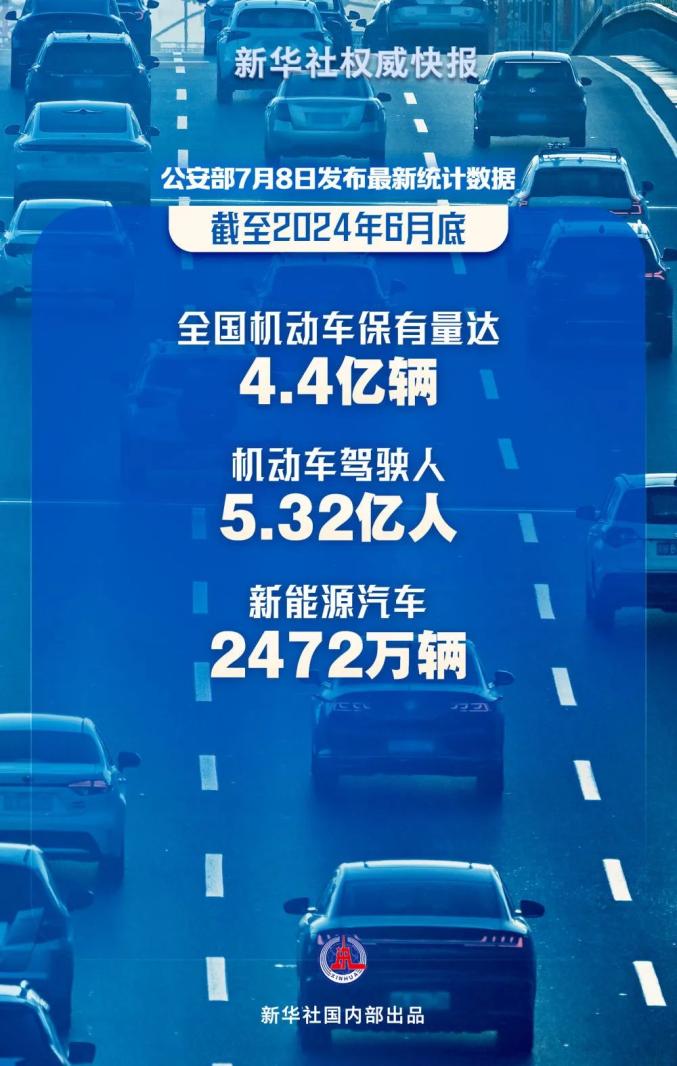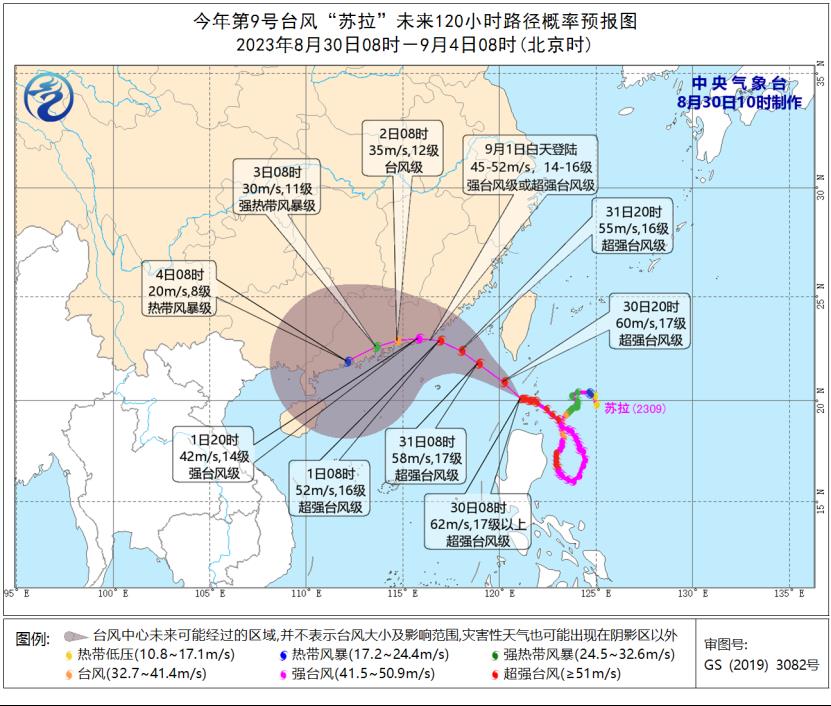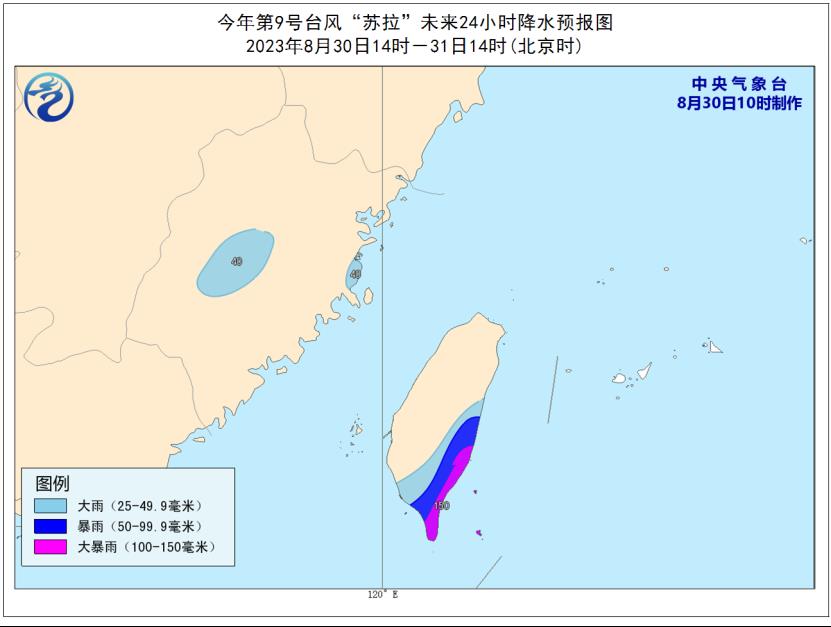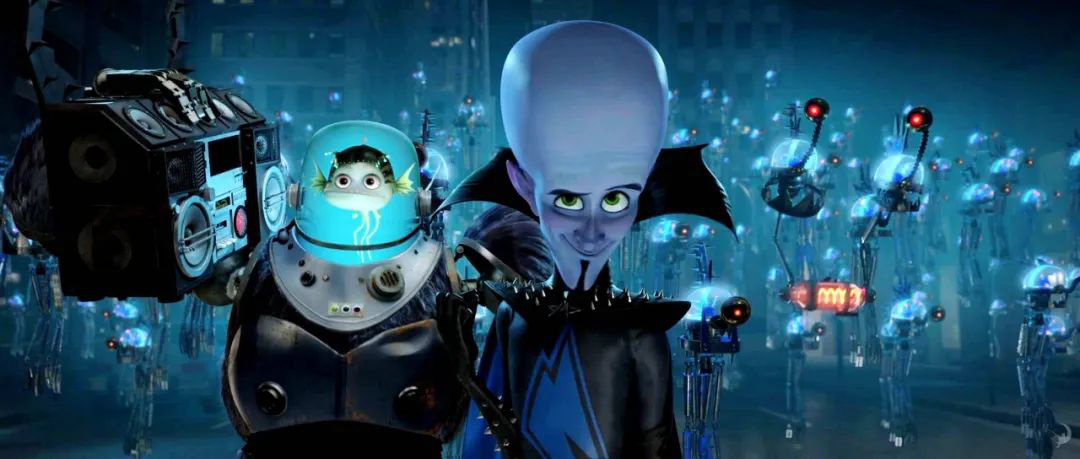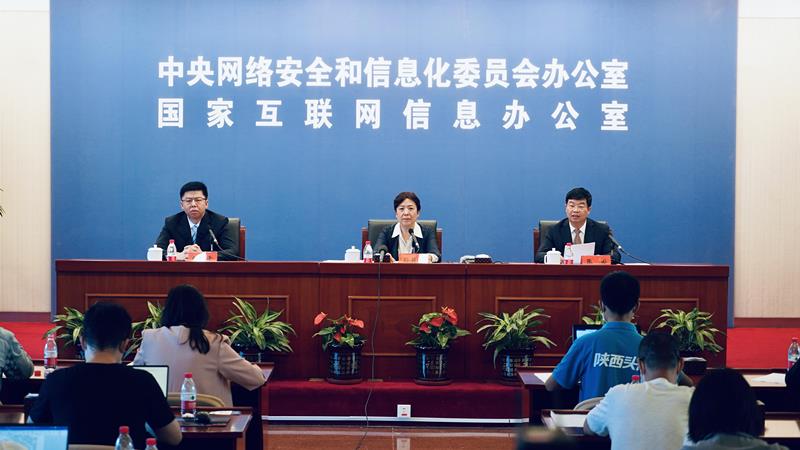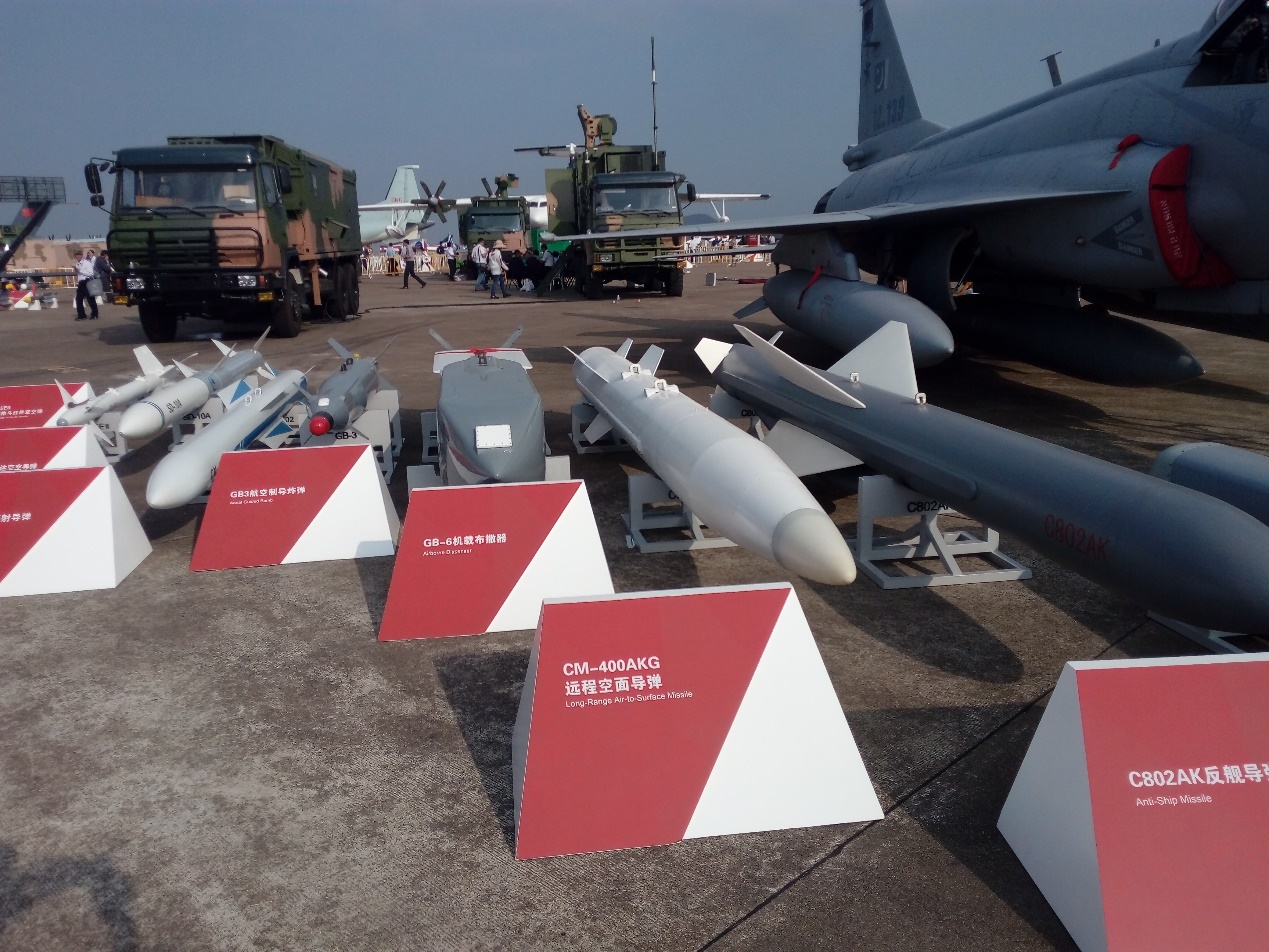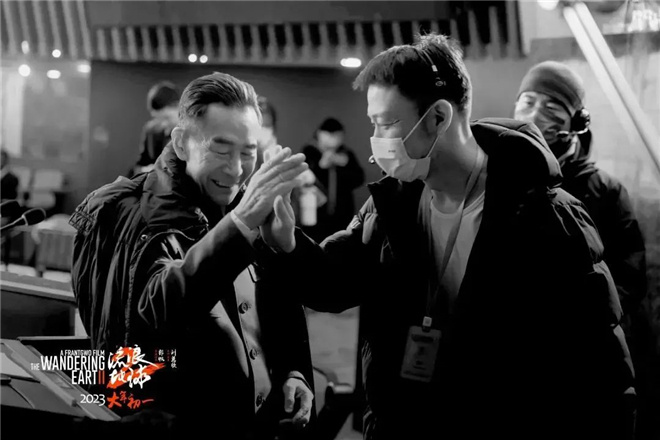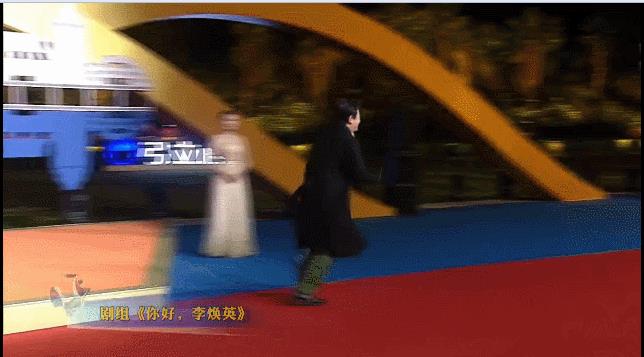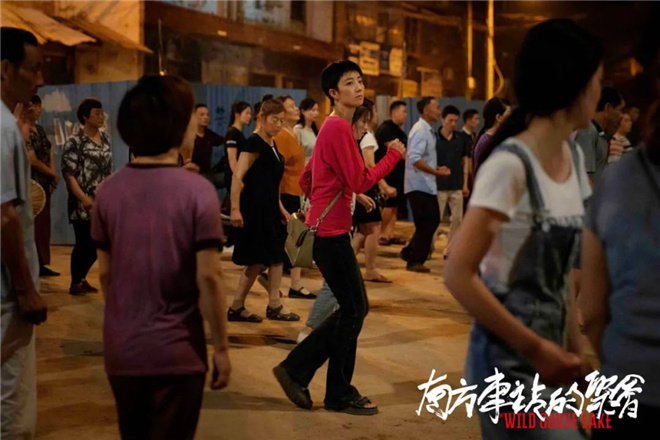
At the Chongqing Auto Show a few days ago, Changan Ford officially released the "Sports Edition".
This car is not a derivative of the familiar Mondeo sedan-it is a model with a 2.0T powertrain.
To be more specific, this "Mondeo Sport Edition" was actually made by Ford China for the China market before, but now with the help of powertrain adjustment, the product name has been changed to below Mondeo.
01
origin
According to Changan Ford, Mondeo is actually a "family sequence" now. The addition of this sports edition expands Mondeo’s product line, and also makes Mondeo family become a mid-to high-end car product line with four powertrains, including 1.5T and 2.0T fuel assemblies of cars, a 1.5T hybrid assembly and the 2.0T hybrid assembly carried by this sports edition.
As for changing EVOS to "Mondeo Sports Edition", is it ok? Personally, I don’t think there is anything wrong with it. A good and well-known product line, constantly expanding derivative models is also the routine operation of car companies, but it is rare to keep only one product line.
For example, Chinese people are familiar with it. In fact, there were hatchback version, sedan version and coupe sports products at the beginning. The latest car company to do this is Toyota-expanding from a single model brand to a product line including cars, sports coupes.

Therefore, "Mondeo", as the best-selling and most recognized product of Changan Ford in China market at present, can be regarded as "bringing the old with the new" by adding a previous "unpopular" model, and may receive additional effects.
Moreover, considering that Mondeo doesn’t have many new car moves in the China market this year, it is also very reasonable to continue to drive the popularity of Mondeo by adding a "Mondeo Sports Edition".
02
motive force
So, what about the Mondeo Sports Edition after switching to Ford’s "high-horsepower E-hybrid"?
First of all, Mondeo Sports Edition is a powertrain with only E-hybrid 2.0T EcoBoost, and the 2.0T+8AT version has been cancelled. This is also different from the power version of Mondeo car, which has the strongest power output in the family, so it is reasonable to call it "sports version".

This 2.0T hybrid adopts the power split configuration E-CVT gearbox, so like most hybrid models of Toyota and Honda, it can only be blue.
But the biggest difference between it and hybrid products such as Toyota and Honda is that Ford, an American brand, is very persistent in its pursuit of performance.
First report the parameters of Mondeo Sports Edition:
The 2.0T high-power engine with 212kW and 403N·m is the most powerful engine in the hybrid powertrain. Compare the high thermal efficiency engines that hybrid models like to use now. Most 2.0T hybrid engines are only 150 and 160kW at most, and the high thermal efficiency of 1.5T is about 110kW. Even for the 2.0T engine used for pure fuel vehicles, the power above 200kW is actually very limited-the torque is mostly below 400 N m.

Not only that, Mondeo Sports Edition also has a high-power motor of 140kW and 320N·m, which is much stronger than the output of Toyota THS motor with the same configuration of only 83kW, and also more than the 135kW of Honda iMMD, even stronger than many P3 motors with DHT architecture.
Of course, the gearbox of Mondeo Sports Edition is still in power split configuration, so the output power cannot be directly superimposed. The comprehensive power output of this set of E-hybrid 2.0T is 227kW, which has reached the output level of 3.5L V6 engine in terms of performance. Although it is less than Ford’s 2.7T V6 in that year, the torque output is estimated to be comparable.

Changan Ford said that with the help of Mondeo Sports Edition and the motor, the zero-hundred acceleration can run within 6 seconds, while the middle acceleration of 40-80kph can achieve 2-second acceleration. Therefore, Mondeo Sports Edition is really worthy of the title of "sports" at least in terms of motivation.
In actual driving, Mondeo Sports Edition still retains three driving modes: standard, energy saving and sports, and at the same time, it has an L gear, which is equivalent to strong kinetic energy recovery. However, there is no choice of pure electric mode, which may be a difference between Mondeo Sports Edition and Japanese Hybrid.

In the standard mode, the output of Mondeo Sports Edition will be abundant, and the throttle opening of about 10% and 20% will be smoother and smoother than that of traditional fuel vehicles. Moreover, when the full throttle goes down, the speed can be pulled up very smoothly, and the power output is also very direct, but there is no shift feeling of the traditional gearbox.
Compared with the standard mode, the sport mode mainly makes the output more rapid at the initial throttle opening of 5%, and there will be a feeling of rushing out. And the acceleration of the whole middle section will be sharper, especially in the corner, when you turn out and add the throttle, the release of the whole power will feel faster. It is guessed that 2.0T will stay in the high-speed range more. This actually shows that the power split configuration is closer to the driving feeling of the oil truck, and the motor mainly participates in the middle and low speed working conditions.

The energy-saving mode can be said a little more. First of all, the starting state will be smoother and the power will be slightly restrained. It is suitable for starting with a small throttle opening, which is very soothing. In the energy-saving mode, the acceleration feeling of basically stepping on the throttle opening of 30%-50% will not be too strong, that is, the normal speed increase, which is very oily, not the surging output of the motor. When the full throttle is depressed, there will be an obvious power lag, which seems to confirm whether the driver really needs power, and there will be an obvious power release after about two seconds.
In addition, there is a problem in the energy-saving mode, that is, in the state of following the car at a speed of 30 to 40 kilometers per hour, you can obviously perceive the state of electromechanical coupling, and there will be some slight rush.
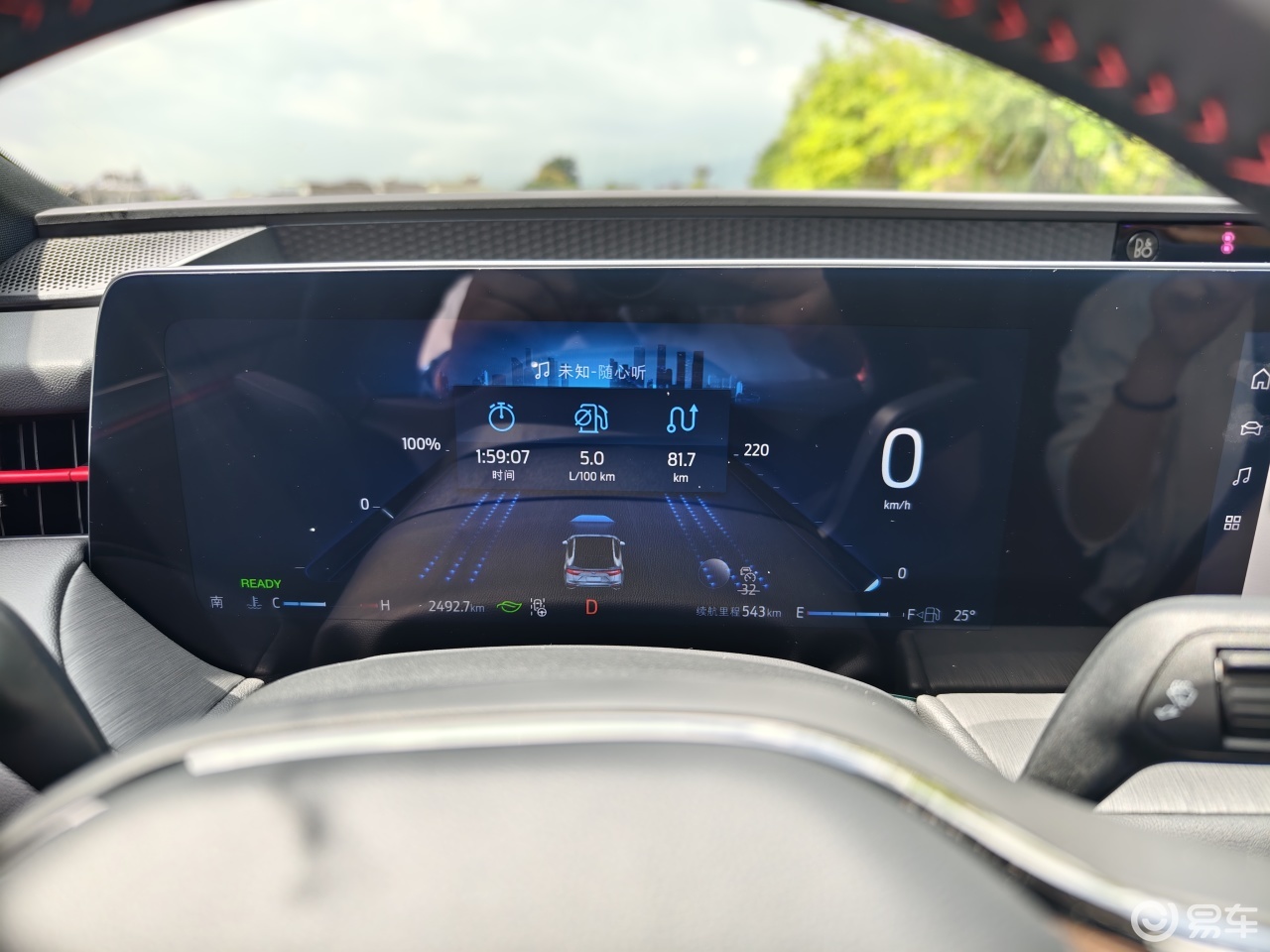
As for the fuel consumption performance, it should be said that it is the advantage of Ford Mondeo Sports Edition, with an average speed of about 40 kilometers per hour, 22-degree air conditioning and 3 wind protection throughout the journey, and the average fuel consumption is 5L/ 100 kilometers. Compared with other media, this figure is really a little high. Some media even ran out of 3.9L/ 100 km without air conditioning, while most media ran out of 4.7L. Later, I summed up the reason why my car ran out of 5L, which should be that I kept driving L gear and skidded too little (L gear is more suitable for downhill road conditions).
03
control
The motivation of Mondeo Sports Edition is enough, but in terms of chassis control, this car is not as "sporty" as expected, but prefers more comfort that China consumers like. This is actually consistent with the current Mondeo sedan. After all, the chassis structures of the two models are also consistent.
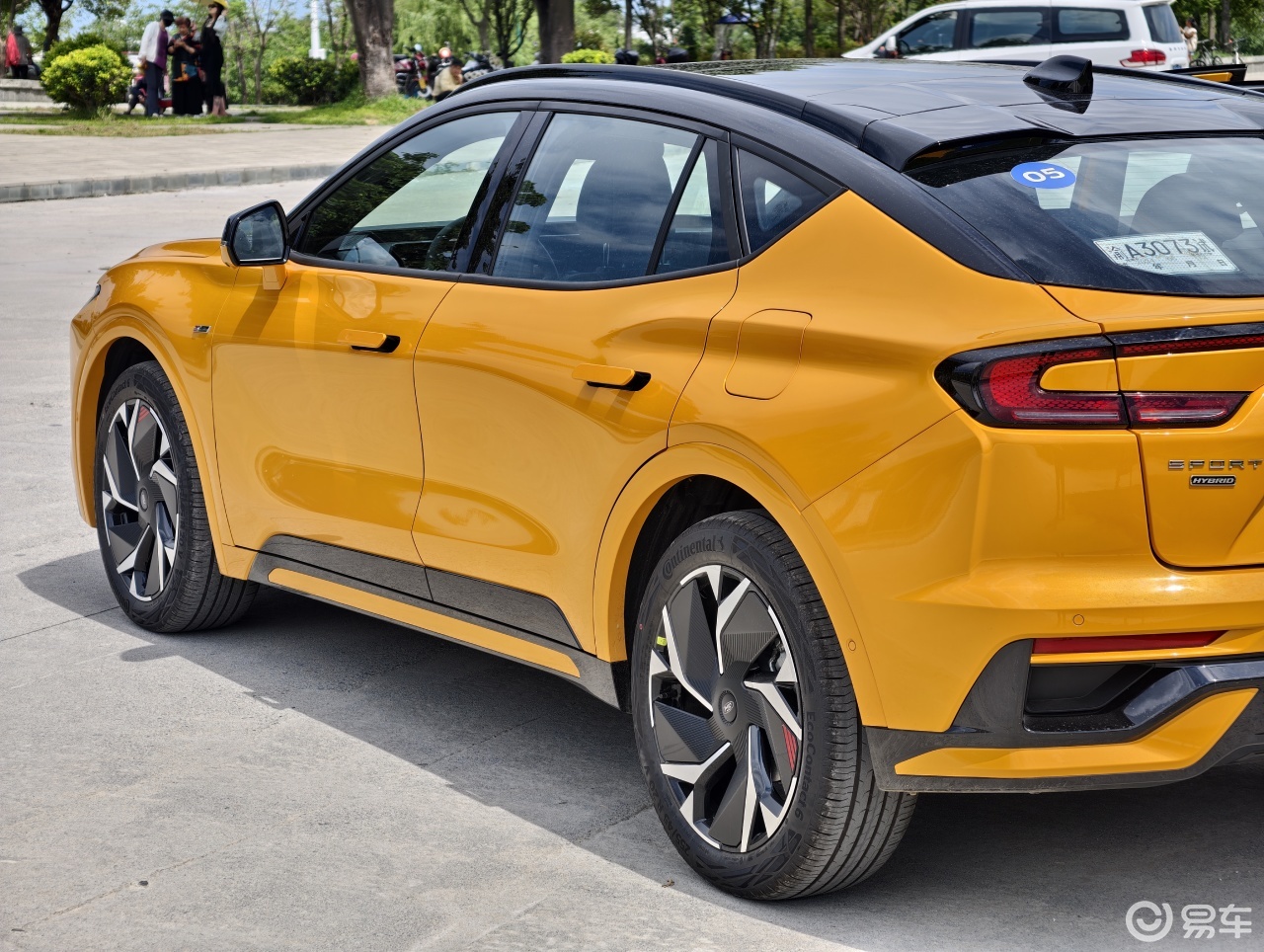
In terms of driving experience, Mondeo Sport Edition uses a 20-inch wheel hub size, and matches the low rolling resistance and some sporty tires like Mapai EC6. Therefore, at first, you will feel that the contact feeling of this car is hard when driving to road joints and potholes, and the vibration transmission is still relatively high. Just thanks to the soft cushion, the problem of hard contact can be better solved.
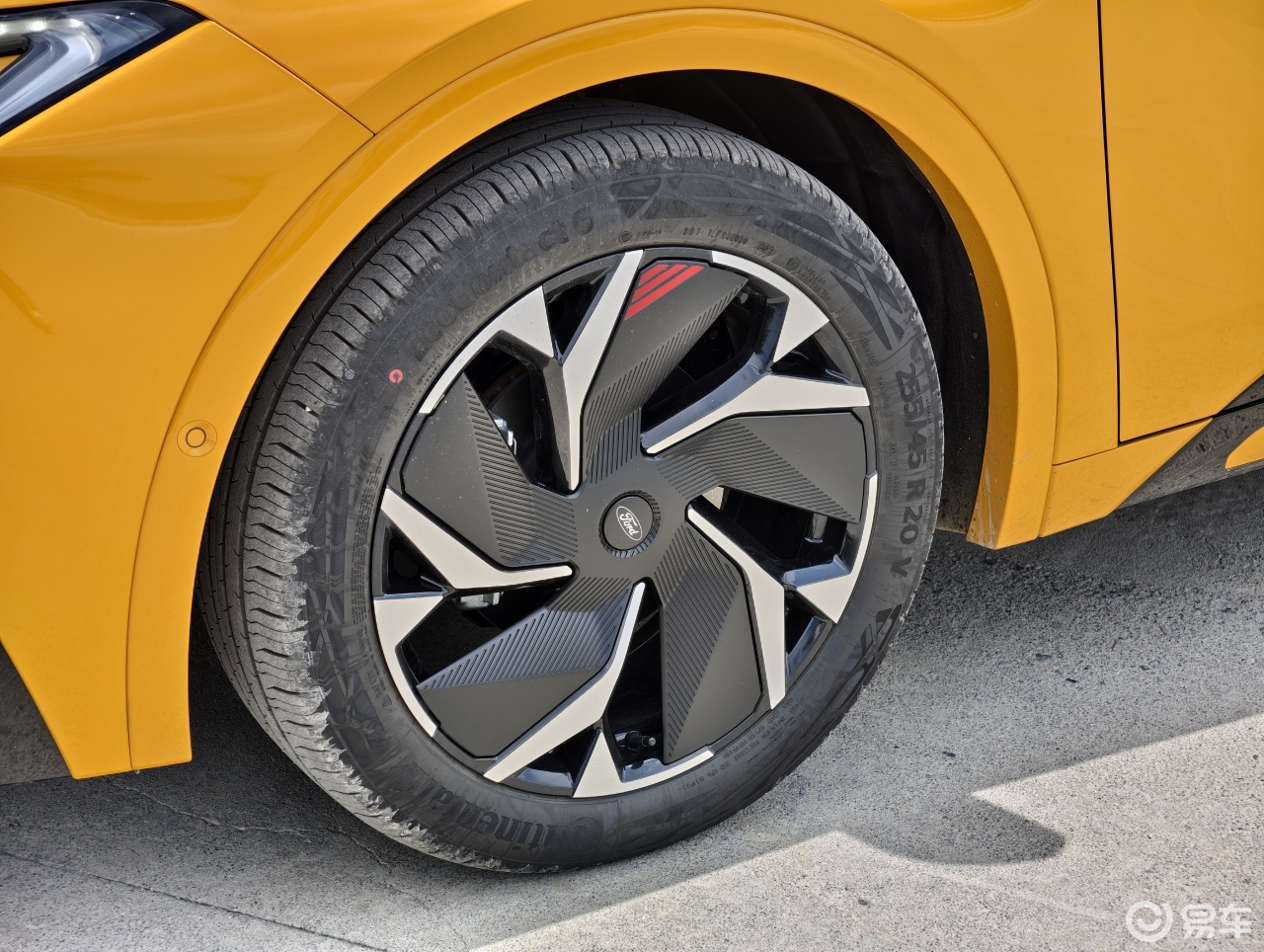
However, when you drive in continuous curves and national roads for an hour, you will find that the chassis of Mondeo Sports Edition is still a comfortable route. When encountering a big pothole, the compression of the whole suspension is still very large, so as to make the impact softer as much as possible, and the left and right shaking of the whole body is more obvious.
Moreover, in corners, as long as you turn sharply with a faster speed, the roll of the whole body is relatively obvious. Fortunately, the roll rate will be slower, and it will not suddenly collapse. If you meet the acceleration belt in the corner and you are still accelerating, the rear axle will slip more, which is very similar to the Mondeo car.
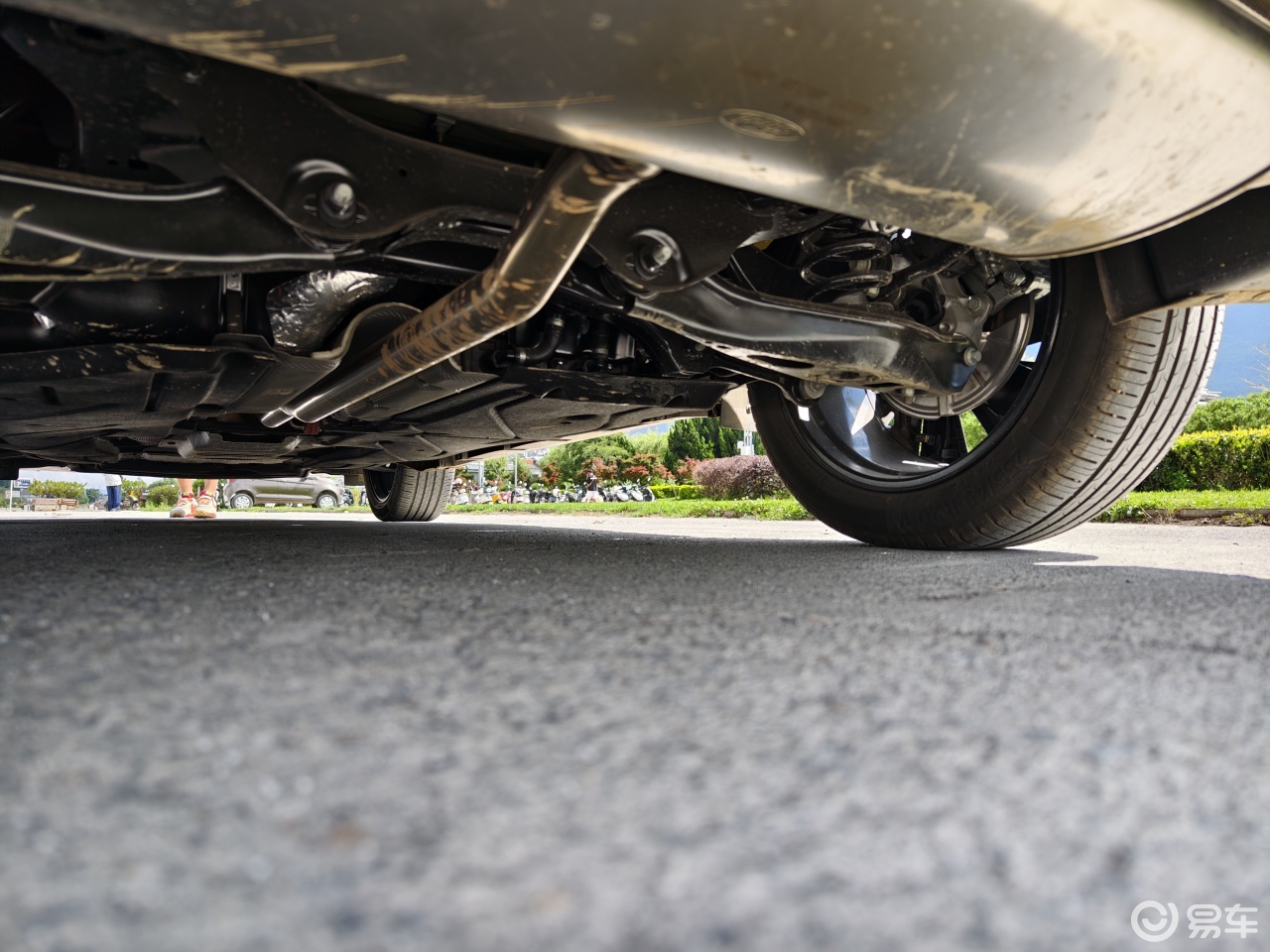
Because I have been driving for a long time, personally, I feel that the Ford Mondeo Sports Edition is not as "whole" as the electric horse on the chassis, and the whole body swings relatively large, which may also be related to the different rigidity of the body, and the whole suspension is indeed softer.
However, it is also beneficial to adjust the direction of comfort. When driving on a flat national road, the vehicle will have a good sense of suspension, and the bushing can control the ups and downs of the road properly, which is a classic American cart feeling.
In addition, during this test drive in Dali, there were a lot of dense speed bumps and pavement patches on a section of the road. This kind of high-frequency vibration will actually bring very uncomfortable driving feeling to sports vehicles. For example, I have driven on the same section, which can only be said to be unsatisfactory.

But this time, if you switch to the Ford Mondeo Sports Edition, you can obviously feel the high-frequency vibration generated by driving through the dense speed bump, but it is soft enough to be transmitted to the driver. The suspension can eliminate many shocks in a short time, and there will be no feeling of jumping at the tail of some cars, which is more comfortable than the electric horse.
In terms of steering, Ford’s adjustment of Mondeo Sports Edition is also in line with the "taste" of China consumers, and the whole steering feel is light and the electronic taste is obvious. Especially at low speed, it is easy to turn the steering wheel, and the virtual position is slightly larger, which is obviously different from the global model Ford electric horse.

Perhaps Ford China’s thinking is not to adjust the steering wheel too heavily when driving a big car in China. After all, it is inconvenient to cross the street and back into the warehouse. Fortunately, after the speed rises, the steering with the speed will be heavier and the center will be good, which is suitable for long-distance driving.
04
static
After talking about the dynamics of the new Mondeo Sports Edition, let’s briefly review the static performance of this "not a new car".
The first thing to say is that this car is called "Mondeo Sports Edition", which means that Changan Ford does not think it is an SUV, but a hatchback. Changan Ford also emphasizes that the height of the sports version is 1.6 meters, which is just stuck on the dividing line between SUV and car, so it is still the positioning of hatchback coupe.

But you said that it is not an SUV-in fact, the full-load ground clearance has reached 168mm, which is even superior to many urban SUVs in terms of passability.
Besides the selling point of powertrain, another main selling point of Mondeo Sport Edition is space.
In terms of size, the length of the car is about 4.92 meters, the width of the car is about 1.92 meters, and the wheelbase has reached 2945 mm.

According to the actual measurement, the leg space in the back row of this car is quite ample, and the knee space is close to one meter. On the premise that the second row is upright, it has a trunk space of 527L, and the platform is quite flat. After the second row is put down, it becomes a large space of 1550L, which is also practical enough.

In terms of appearance, the new car mainly adds the body color of Xiao Ri Orange, and comes standard with 20-inch wheels. The ordinary version and the ST-Line version are also different in design: including bright black ornaments on the outside, bright black window strips, ST-Line logo, etc. On the interior, the ST-Line version uses bright red decorative strips, as well as sports seats, ST-Line embroidery and so on.



The rest of the configuration is no different from the previous EVOS, and the 27-inch 4K large screen, SYNC+ 2.0 system, Wolong awakening welcome induction system and so on are retained.
05
Summary of driving an official
In terms of price, the Mondeo Sports Edition is not expensive either-starting from 209,800 yuan, and the ST-Line version is 229,800 yuan.
The extra 20 thousand yuan is mainly because the ST-Line version has a separate appearance kit. The seat configuration is equipped with heating and ventilation memory and B&O audio, and the safety configuration is equipped with front radar, knee airbag, panoramic image and parallel auxiliary functions. Obviously, Changan Ford is probably thinking that young consumers don’t care about this 20,000 yuan, and they can sell a little more.

In a word, Changan Ford added a sports version to its own Mondeo family, which brought the strongest power system in the whole Mondeo family, a more dynamic and personalized appearance. I think it is also an innovation of Changan Ford in the mid-to high-end car market, further amplifying the sound volume and product options of Mondeo.
For some young consumers, they want a big car with better sports performance, and if they think L is too serious-then Mondeo Sports Edition is very suitable.
And the Mondeo Sport Edition is not behind in the powertrain. The high-horsepower hybrid is superior to any opponent with a price of 200,000 yuan, and it will not lose face.
(END)
